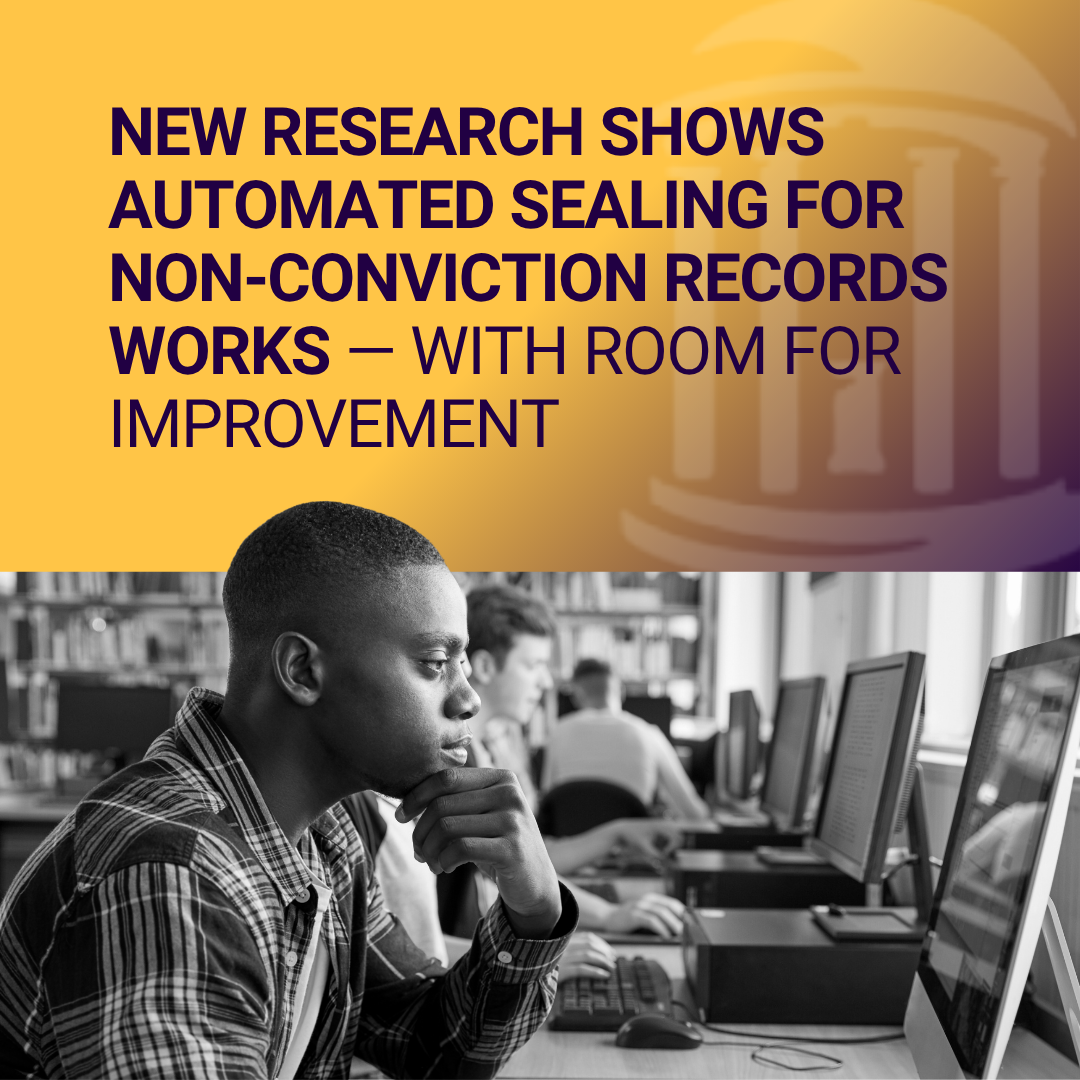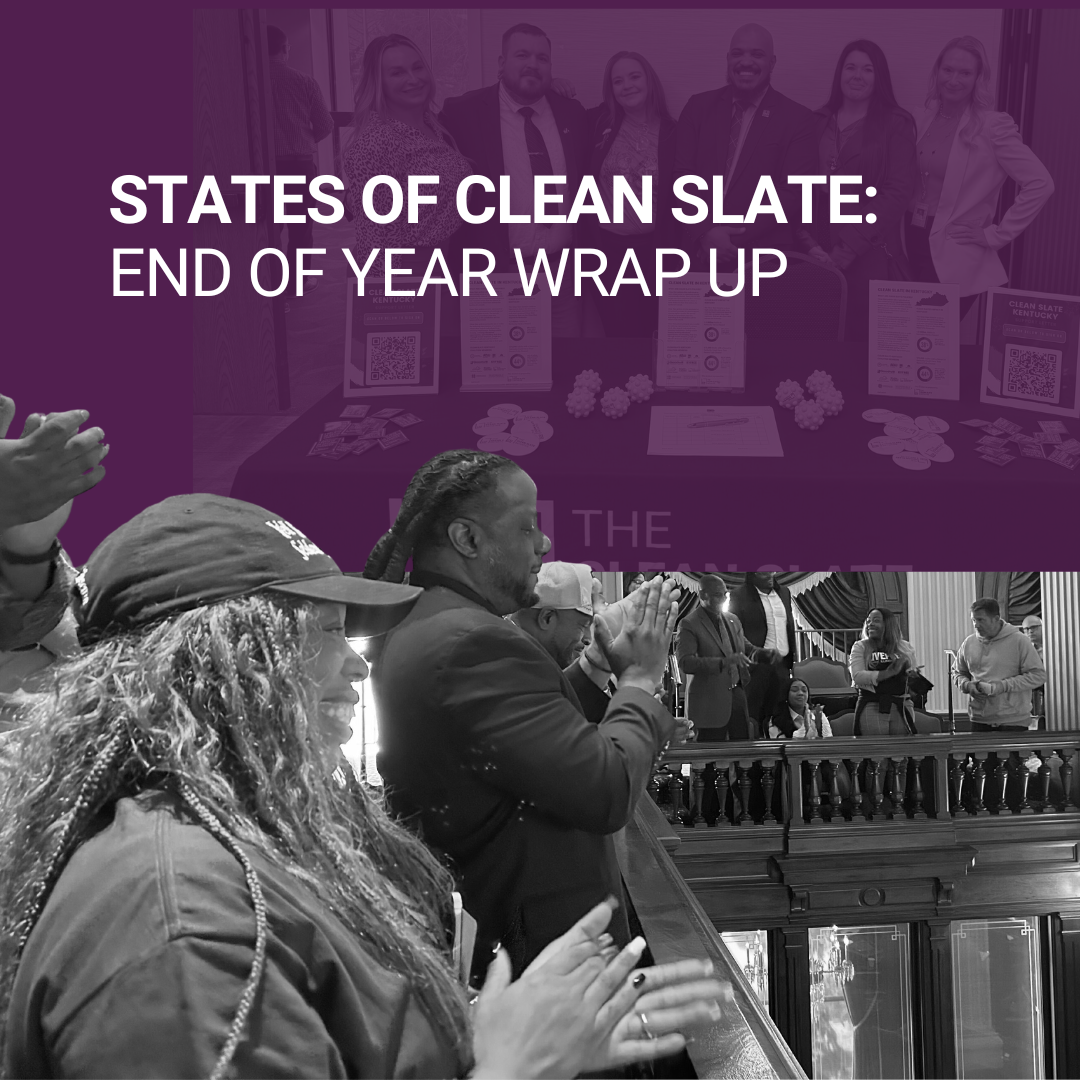Shifting the Record: Changing the Narrative to Advance Clean Slate


The Clean Slate Initiative’s (CSI) mission and vision are the guiding posts for all the work that we do.
Our Mission: The Clean Slate Initiative passes and implements laws that automatically clear eligible records for people who have completed their sentence and remained crime-free, and expands who is eligible for clearance.
Our Vision: People will no longer be defined by their records and will have the opportunity to contribute to their community, have a fair opportunity to work, get an education, and achieve their full potential.
Two critical pillars of our mission-focused work are passing and implementing Clean Slate legislation — those pillars are the ones that we talk about most often. But there’s a third pillar driving our work that gets shadowed behind the scenes sometimes. This third pillar recognizes that true progress requires more than just legislative change: it means changing hearts and minds, too.
Stigma surrounding people with records can hinder our ability to pass and implement Clean Slate laws. Even beyond the legislative impacts, those perceptions stick a scarlet letter on people with records long after they’ve paid their debt to society, which can add to the barriers people face when trying to build a better life. That’s why narrative change is a key part of CSI’s three-pronged strategy to fulfill our mission.
Changing how society views people with records is a tall order, but we’re up for the task. Here are some projects we’re working on to build toward a future where there’s more understanding and less stigma:
Centering Directly Impacted People by Sharing Real-Life Stories
CSI’s storyteller series showcases real-life people across the country who have, or had, an arrest or conviction record. Hearing first-hand experiences is one of the most impactful ways we can build support for Clean Slate.
The storyteller series helps illustrate that this is an issue that affects all of us. In these videos, you can see a wide range of people who have faced the challenges of living with a record: struggling to find a house, being turned down from good job opportunities, or feeling the weight of rejection from universities, for example.
These barriers are blocking a better life for 70 - 100 million people in America who have a record — people who want to work hard and contribute to their communities, people who have families to take care of, or who want to move beyond their past with an education. Sharing as many of their stories as we can is one way we’re able to grow support for Clean Slate policies nationwide.
Showing Support for Clean Slate Across the Divide
Clean Slate legislation has gotten support across a divided political spectrum by focusing on our common ground to illustrate that automated record sealing is good for our economy, our communities, and our families. This is an issue that touches all of us, no matter our political views.
Most of us want to take care of our families and keep them safe. We also believe in fairness — no one should get special treatment just because they have the time and financial resources to complete a complex petition process for getting a record sealed, while working families are left behind. The idea of second chances is something many of us agree on, which is why over 70% of voters, across party lines, support Clean Slate policies that offer people a fresh start.
This approach is already helping to shift the narrative and pass Clean Slate laws. To date, 12 states have passed Clean Slate laws that meet CSI’s policy minimums, and Congress has introduced a bipartisan Clean Slate Act that shows a range of support for automated record sealing at the federal level. We couldn’t make that kind of progress without changing some hearts and minds.
Bringing Narrative Discussion to Places Where People are Working to Make Change
Sheena Meade, our CEO, has been invited to speak at a few narrative-focused events recently.
In late August, during the Democratic National Convention (DNC), the NAACP hosted a panel event and invited Sheena to give remarks during the event. She reminded attendees how important it is to be aware of the words we’re using to describe people who are directly impacted by the justice system — especially during an election where the “prosecutor vs felon” narrative tends to use dehumanizing language. See our blog on responsible dialogue during the presidential election as well as our coverage on this topic in The 19th, Mother Jones, and The Intercept.
Sheena also spoke at the Next Narrative Summit, an event hosted by BMe at the beginning of September. The summit’s theme was “You can’t lift people up by putting them down,” and she joined up with Desmond Meade, Executive Director of Florida Rights Restoration Coalition, to talk to attendees about the importance of centering directly impacted people in the narratives organizations use for fundraising purposes.
Understanding Where People Are Coming From So We Can Meet Them Where They Are
CSI is investing in a narrative change research project that aims to create a deep understanding of people’s perceptions around people with records and automatic record sealing. This will enable us to craft the right messages from the right messengers to meet our audiences where they are.
At the end of the day, we can only meet our mission if we’re able to pass and implement Clean Slate laws, but we can only do that if we have the support to get and keep those policies in place. So we’ll continue our work to change hearts and minds, laying the groundwork for transformational change – a society where no one is defined by their record.
.avif)
.avif)




.png)